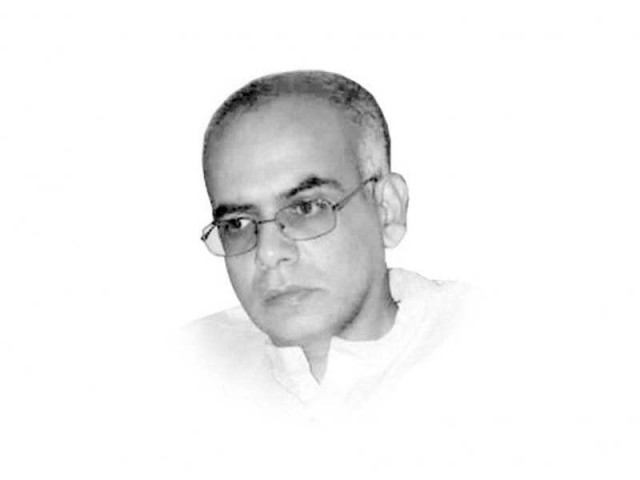Is Ahed not a hero?
Ahed has become a symbol of resistance against Israel

The writer is a development anthropologist. He can be reached at ali@policy.hu
Ahed, like Malala, has a history of advocacy for an important cause. However, there is a world of difference between the causes that Ahed and Malala have championed. While Malala took a defiant stance against the internationally despised Taliban, Ahed has become a symbol of resistance against Israel.
Malala was shot in the head by non-state actors. Ahed slapped an Israeli soldier, who had entered their backyard during widespread unrest in the West Bank, following the US decision to recognise Jerusalem as Israel’s capital. Apparently, this incident occurred soon after a soldier shot her 15-year-old cousin in the face with a rubber bullet and fired teargas directly at their home. Earlier, Ahed had lost an uncle and a cousin due to Israeli actions. Her parents and brother have been repeatedly arrested. When Ahed was 11 years old, she shot to prominence after being filmed threatening to punch a soldier after her elder brother was arrested. Two years ago, she also bit a soldier trying to detain her younger brother.
The primary evidence based on which she was finally arrested in December was an online video of her slapping the Israeli soldier. This video went viral and has been repeatedly aired and discussed by the mainstream media. Ahed’s mother was also detained when she went to a police station to inquire after her daughter. Both have recently been denied bail. Besides the ‘assault’ itself, a serious accusation on Ahed’s charge sheet is that she and her mother have attempted to influence public opinion and incite violence.
The context of Malala’s and Ahed’s resistance is very different, as are the incidents that these girls have faced. After Malala’s life was saved, she famously forgave those who shot her. Ahed seems to remain defiant and angry. However, Ahed’s ordeal is by no means over. She is still stuck in an oppressive and violent vortex. Ahed’s attitude seems indicative of sentiments shared by an entire generation of Palestinian youth.
Moreover, there is little global support for Ahed compared to Malala. When Malala was shot, the former prime minister of the UK, Hillary Clinton and Julia Gillard spoke up in support of her. Unesco launched the ‘Stand Up For Malala’ campaign. After her recovery, Malala was invited to meet then president Barack Obama. She was invited to address the UN General Assembly. She received numerous international accolades and was eventually given the Nobel Peace Prize in 2014.
Conversely, besides the Palestinian Authority and the Turkish prime minister’s recognition of Ahed, no other Arab leader has given her much attention. Not many high-profile political figures have issued statements supporting her. No international organisation has declared an ‘Ahed Day’.
This stark difference in Western attitudes between these two young girls has been described by some to have revealed the West’s selective humanitarianism, whereby only particular individuals and causes are deemed worthy of intervention. Ahed may not fit the ideal victim-subject for transnational advocacy since taking up her cause would mean going against the interests of a Western allied state. However, if Ahed’s actions are not viewed more sympathetically by Israel, and if she is not supported by the international community, yet another chance would be squandered to adopting a more comprehensive and compassionate solution to the plight of Palestinians.
Published in The Express Tribune, January 26th, 2018.
Like Opinion & Editorial on Facebook, follow @ETOpEd on Twitter to receive all updates on all our daily pieces.













COMMENTS
Comments are moderated and generally will be posted if they are on-topic and not abusive.
For more information, please see our Comments FAQ